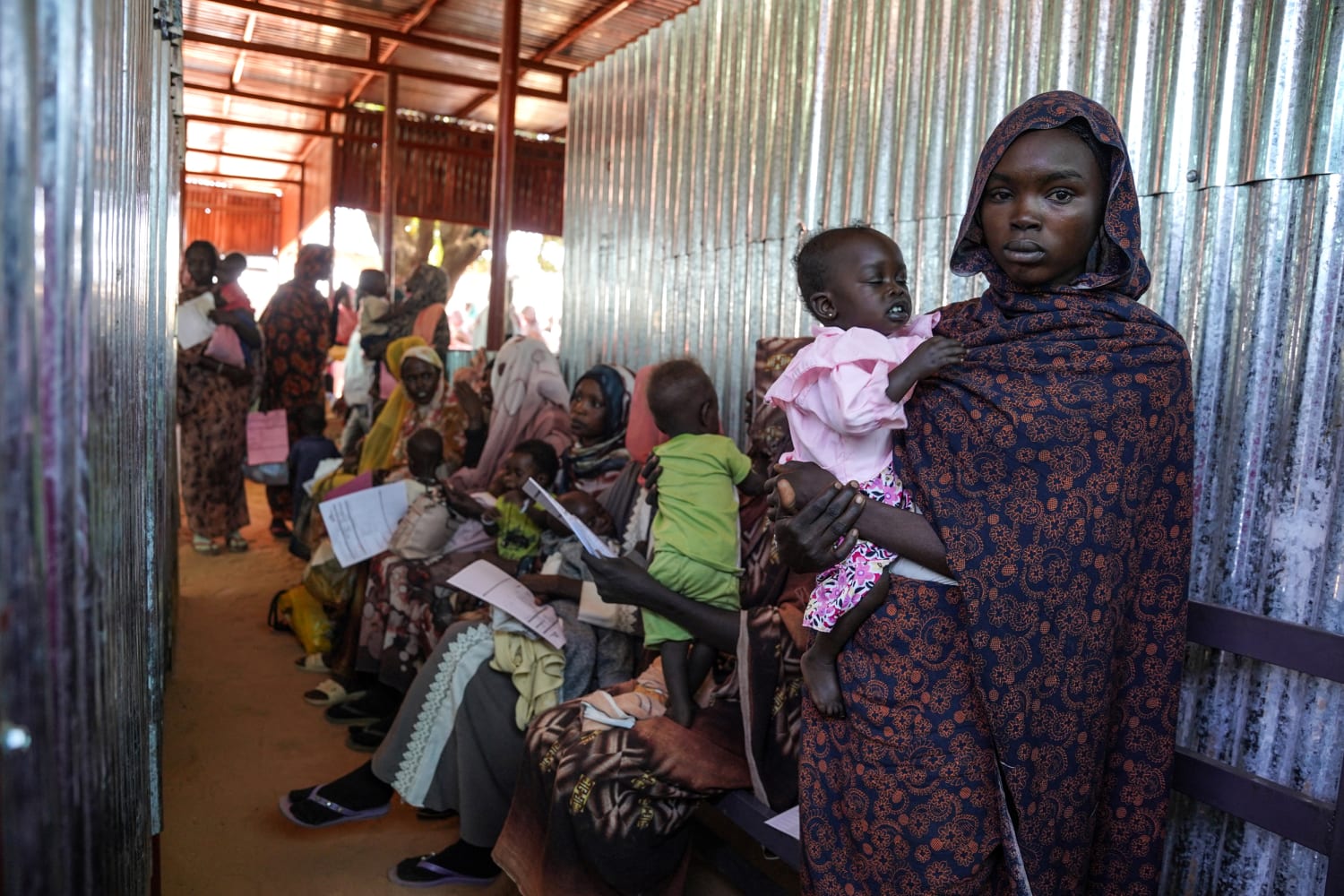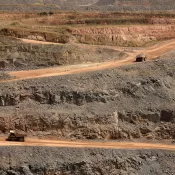
Residents and MSF criticize Sudan’s famine-stricken Zamzam camp
Volunteers and the medical assistance organization MSF said that the Rapid Support Forces had shelled the famine-stricken Zamzam displacement camp in Sudan as the paramilitary group aims to consolidate its hold on the Darfur region in the conflict.
The army-aligned Joint Forces troops were accused by the RSF of deploying within the camp and using people as human shields. The RSF denied invading the camp, which had previously served as a safe haven from the catastrophic combat in the area.
In a statement describing a “beyond chaotic” scenario with “casualties, panic, and mass displacement,” Michel-Olivier Lacharité, the chief of emergency operations for MSF, stated, “Not only have people been starving, but they are also now being bombarded and forced to flee again.”
A severe humanitarian catastrophe has resulted from the army and RSF’s more than 18-month-long fight, forcing over 10 million people from their homes and making it difficult for U.N. organizations to provide aid.
Over 20 shells were fired at the Zamzam camp on Sunday and Monday, killing at least six people and injuring 13, according to the al-Fashir resistance committee, a pro-democracy organization that has kept an eye on the violence in the region. On Tuesday morning, there were no shelling reports.
The only significant city in the area remaining under the authority of the army and its associated Joint Forces, al-Fashir, is close by and has been under siege for a long time by the RSF.
Numerous people have been killed and thousands have been forced to flee the city since April due to the siege and the artillery and aerial shelling exchange. This includes Zamzam, a sizable camp that is home to at least half a million people who have been displaced by the ongoing conflict and previous conflicts between Arab militias known as the Janjaweed, which later became the RSF, and non-Arab rebel groups.
A worldwide food monitor called the Integrated Food Security Phase Classification (IPC) concluded in August that famine was occurring in Zamzam and probably in other camps within al-Fashir. The World Food Program had just finished its first shipment to Zamzam in months when the incident occurred.
VOLUNTEER: People flee in panic
The group wrote on Facebook on Monday that “the frightened screams of children can be heard from inside their tents.”
Volunteers uploaded footage to several media outlets showing tents set up by recently arrived Zamzam residents abandoned following the shelling. One volunteer reported that the shelling caused panic and people to run in all directions.
Throughout the conflict, Zamzam has been a safe haven from the fighting in al-Fashir until this week thanks to the presence of some Joint Forces militants, who are made up of former Darfur rebel groups that have sided with the army.
The “creation of defensive positions in Zamzam consistent with the expectation of attack in the near future,” according to a study released in November by Yale Humanitarian Lab, which keeps an eye on humanitarian crises worldwide, did not identify the people responsible for their construction.
“Our forces are committed to ensuring the safety of civilians and seek by all means to spare them the dangers of fighting and will move forcefully to defeat … the mercenaries and militias and destroy their last strongholds in al-Fashir,” the RSF stated in a statement issued on Monday.
The RSF is in charge of the majority of North Darfur and has used arson to assault settlements that are primarily inhabited by non-Arab groups. Additionally, the army has attacked nearby villages with airstrikes.
According to a Tuesday report by the International Organization for Migration, at least 84 families left the conflict in al-Fashir and Zamzam on Sunday and Monday.
Adam Rojal of the Coordinating Committee for Displaced People said that some had taken sanctuary in the town of Tawila and other areas in the area ruled by Sudan Liberation Army soldiers loyal to Abdelwahid Nur, a rebel group that has stayed neutral in the conflict.
That region, however, has little resources to handle the inflow and is itself experiencing emergency levels of hunger, according to the IPC.
All Categories
Recent Posts
Tags
+13162306000
zoneyetu@yahoo.com


